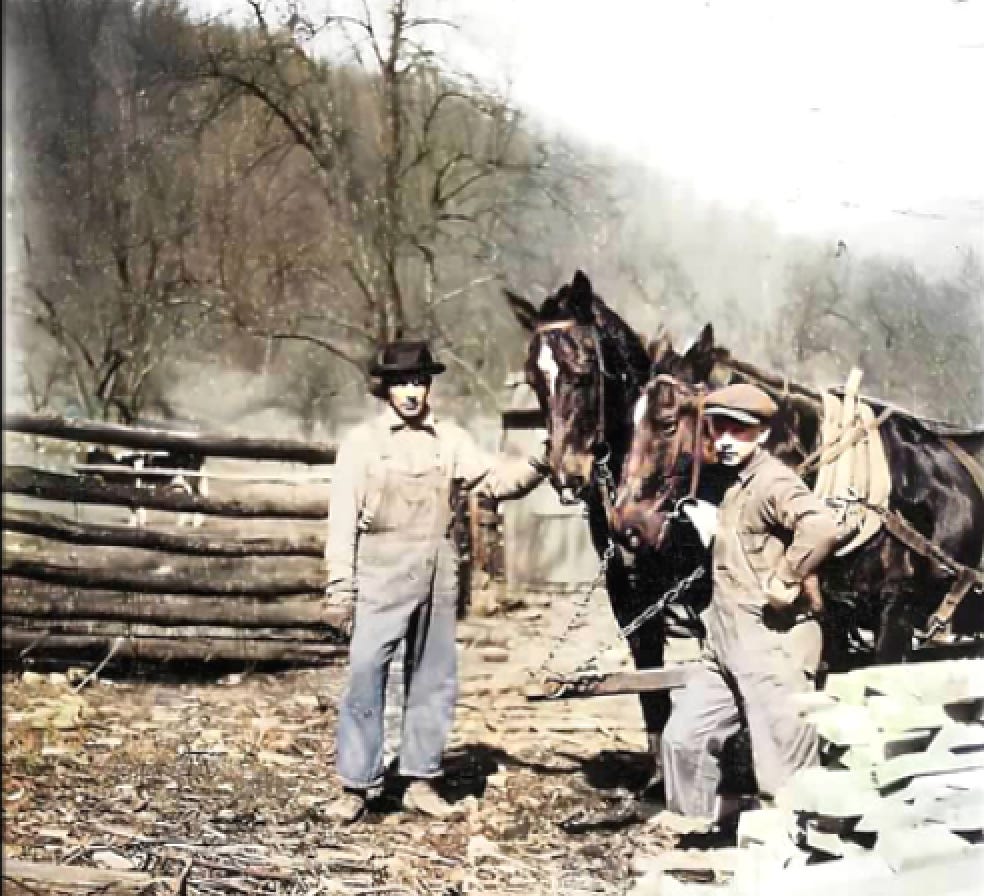Earlier today, I decided to browse through the Fayette County, District 14, 1850 Census to take notes on people’s occupations.
Of course, almost all households had at least one farmer. The next most common livelihood was laborer. There were 275 boys and men who identified themselves that way. I paid attention to the ages and found that no one under 15 was listed as a laborer; keeping in mind that detail, I found out that the vast majority were either teenagers or men in their twenties. However, there were a few, probably three or four, who were actually quite elderly—in their sixties or seventies. You can imagine as well as I can what laborer entailed. It could have meant just about anything—basically just helping get the job done anywhere help was needed if payment was part of the deal.
Other than farmers and laborers, there were 85 people, mostly men, who identified themselves with other occupations. Sometimes, it was hard to distinguish whether the handwriting was farmer, tanner, or farrier, so it’s possible I have made mistakes in situations like this. Generally, the word farmer began with a lower-case “f” while Tanner started with a capital letter. It was helpful to notice that difference.
Yesterday, I mentioned at least three people who were tanners, but they were not necessarily from the 1850 census. However, these men from the 1850 census were listed as tanners: Joshua Mooney, James Peoples, and Jacob Koontz. Listed as shoemakers were John B. Paddleford and Josiah Skaggs. Named as a saddler was Morgan Blume.
Curiously, a couple of people were indicated as devine. I have never noticed that in a census before, but I have come to the conclusion it signified a minister of some kind. Rev. Allen Wood was a minister, but he was identified as a farmer, not a minister, so I am not sure what the distinction was. Martin T. Bibb and David Cunningham were both listed as devine unless I am not transcribing it correctly.
There were three doctors listed. They were Matthew Sawyers, Hudson Campbell, and Joseph W. Pryor. At this time, I cannot provide any more details about them, but it would be interesting to learn what their education and qualifications were, and whether or not they specialized in anything.
A lot of carpenters were named: Harrison A. Fox, N. J. Martin, John Wood, Samuel Kent, John Carnefix, Thomas Skaggs, Sr., Isaac Morris, Henry Stowers, Jacob Counterman, John Harper, James Culbert, and Peyton Morton. At least one person was listed as carpenter and joiner: Albert Harper. I referred to an online dictionary for a definition of joiner, and it said “A carpenter, especially a cabinetmaker.” However, there were people in the census who identified only as a joiner—George Phillips and James H. Phillips—yet, there were others who identified as cabinetmaker: Joseph Remley, Jones Deets (?), Parris McCutcheon, John Thurman, and John Phillips. I would love to hear an explanation of the distinctives among carpenters, joiners, and cabinetmakers.
Quite a few in Fayette County were blacksmiths: Chandler Arthur, William Burgess, Skelton Arthur, Henry Rigg, Irwin McGraw, Peter Winebrenner, Eli Wood, John Wood, Anderson Adkisson, Andrew Nebergall, A. P. Parrish, and Jeffrey Steel, Sr. Then there were a couple of terms that looked like farrier, but I may have misread it for farmer or tanner. I wonder if they made a distinction between a farrier and blacksmith. In regard to wheelwrights, I do not know if they worked with metal or wood or both. The wheelwrights were Nathan Berry and Henry Hess.
Were these people working for the county or for individual clients? Morris Harvey worked for the county as the sheriff and Joshua Mooney as the jailer, but what about the lawyers? They were John Coleman, Milton Amiss, and Beuhring H. Jones. One surveyor named was Samuel Tyree, and those listed as clerks were: John Vaughn, Henry Massey, and H. M. Dickinson.
If you read yesterday’s newsletter, you may have enjoyed learning a bit about the stagecoach drivers. In 1850, these men were stagecoach drivers: Robert Stowers, Micajah Smailes, Charles Mayse, and possibly others who were identified in some other way.
Tomorrow, I will write more about the jobs people in Fayette County had in the 1800s, if not before.









I thank you for the wonderful job you are doing bringing all this history to light! EI, for one, really appreciate the effort!!